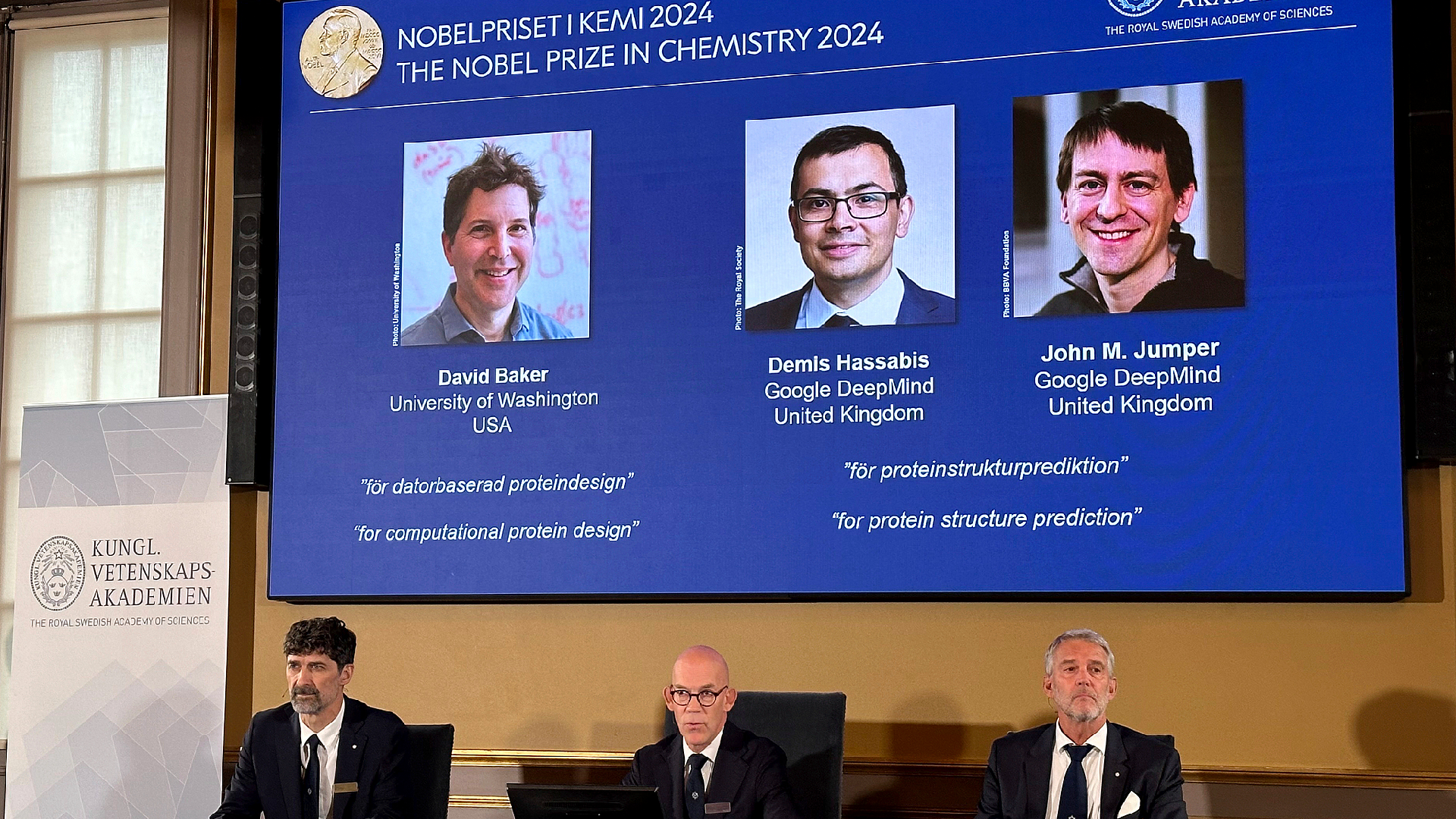Three scientists win Nobel Prize in chemistry for their contributions to protein research
The Royal Swedish Academy of Sciences announced on Wednesday that the 2024 Nobel Prize in Chemistry has been awarded to David Baker for his work in computational protein design, alongside the duo of Demis Hassabis and John M. Jumper for their contributions to protein structure prediction.

"One of the discoveries being recognized this year concerns the construction of spectacular proteins. The other is about fulfilling a 50-year-old dream: predicting protein structures from their amino acid sequences," the academy stated.
The award is split, with half going to Baker "for computational protein design," while Hassabis and Jumper share the other half "for protein structure prediction," according to the academy. The Nobel Prize, regarded as one of the highest accolades in the scientific community, comes with a monetary prize of 11 million Swedish crowns.
Baker, affiliated with the University of Washington in Seattle, has been at the forefront of protein design since 2003. His team has created innovative protein structures with various applications, including pharmaceuticals, vaccines, nanomaterials, and miniature sensors, as noted by the Nobel committee.
On the other hand, Hassabis and Jumper, both working at Google DeepMind in London, developed an AI model that can predict the structures of nearly all 200 million known proteins. This significant advancement enables researchers to ascertain the complex three-dimensional arrangements of proteins based solely on their amino acid sequences.
Heiner Linke, Chair of the Nobel Committee for Chemistry, highlighted the importance of this achievement, stating, "Four years ago in 2020, Demis Hassabis and John Jumper managed to crack the code with skillful use of artificial intelligence. They made it possible to predict the complex structure of essentially any known protein in nature."
Linke also underscored the monumental impact of Baker's contributions, remarking, "Another dream of scientists has been to build new proteins to learn how to use nature's multi-tool for our own purposes. This is the problem that David Baker solved. He developed computational tools that now enable scientists to design spectacular new proteins with entirely novel shapes and functions, opening endless possibilities for the greatest benefit to humankind."
This announcement of the chemistry prize follows earlier declarations of the Nobel prizes in medicine and physics. Victor Ambros and Gary Ruvkun, both Americans, were awarded the medicine prize, while John Hopfield and Geoffrey Hinton, noted pioneers in the field of machine learning, received the physics award.
Established by the will of Alfred Nobel, the inventor of dynamite, the Nobel prizes were first awarded in 1901. These prestigious awards recognize substantial achievements in medicine, physics, chemistry, literature, peace, and economics. The chemistry prize has celebrated various historical figures such as Marie Curie and Ernest Rutherford and continues to highlight pivotal scientific advancements.
Last year, the chemistry prize was awarded to Moungi Bawendi, Louis Brus, and Aleksey Ekimov for their discovery of quantum dots, which are minuscule particles utilized in electronics and medical imaging.
The Nobel laureates are set to receive their awards on December 10, the anniversary of Alfred Nobel's death, during a ceremony in Stockholm, followed by a formal banquet hosted by the Swedish royal family.
Mathilde Moreau for TROIB News
Discover more Science and Technology news updates in TROIB Sci-Tech












